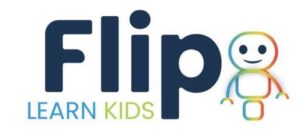WASHINGTON – Political differences over K-12 school choice approaches, instructional priorities and student gender came up again and again in far-reaching discussions at the first full House Education and Workforce Committee hearing of the 118th Congress on Wednesday.
Titled “American Education in Crisis,” the hearing also highlighted areas of agreement, including the need to strengthen college and career readiness, raise math and reading scores, and increase parental involvement in children’s education. Higher education discussions centered on student loan debt, access to career training programs, and workforce needs.
Continuing conversations from the last Congress concerning COVID-19-related student learning loss and how best to improve student outcomes, Republicans said schools need to make academic progress a priority. Democrats emphasized that while academics take top priority, schools should also focus on providing inclusive school climates and resources for student mental health wellness.
Both parties’ members agreed parental engagement in schools is important to student success, although they differed in specific approaches.
“We can all agree that parent and family engagement is an instrumental part of creating a safe, inclusive and supportive public school environment for all students, and I welcome the opportunity to work with my colleagues on the other side of the aisle to uplift best practices, evidence based practices, and family engagement rather than pit parents against their kids’ educators and schools,” said Rep. Suzanne Bonamici, D-Ore.
School choice
Lawmakers and panelists spoke several times about the benefits and drawbacks of public and private school choice options.
Panelist Virginia Gentles, director of the Education Freedom Center at Independent Women’s Forum, told lawmakers research has shown benefits for area public school students from private school choice programs.
“There are a lot of myths around school choice,” Gentles said. “I think it’s important for people to recognize that what is said is often just a talking point and not true.”
She asked that policymakers remove barriers to school options and recommended that they talk to families who are benefiting from choice programs.
But Bonamici said research shows school vouchers don’t lead to improvements in student achievement and undermine the effectiveness of public education.
Democratic Colorado Gov. Jared Polis, a panelist and former member of Congress who served on the House education committee, told lawmakers he’s proud of his state’s charter school authorizing laws that have strong accountability measures. In Colorado, charter schools are viewed as a “constructive, innovative part of public education,” he said.
When asked by Rep. Kevin Kiley, R-Calif., why charter schools have become a partisan issue, Polis said Colorado doesn’t have a political divide on this issue. He added that about 15.2% of students who attend public schools attend a public charter school in his state.
But in other places, he said, charter schools can draw concerns around quality, equity and access.
“I think it is complicated how charter schools affect equity and access,” Polis said. “It depends on the particular charter school. It depends on the attendance. It depends on the recruitment. And yes, some states and some school districts have better or worse authorizing laws.”
Instruction
Throughout the hearing, Republican lawmakers faulted what they said were efforts in some places at the “indoctrination” of students through instruction on racism and gender.
Rep. Mary Miller, R-Ill., pushed Polis to answer whether it was appropriate for a teacher to talk to elementary school students about sexual orientation and gender transitioning. Polis repeatedly answered that those lessons are not part of Colorado’s standards for education.
Democrats accused the GOP of politicizing classrooms for political points.
For instance, ranking member Bobby Scott, D-Va., criticized Republican politicians’ efforts to ban books, censor curriculum and “punish teachers for accurately recounting our nation’s history.”
Scott said the Rebuild America’s Schools Act, the Strength in Diversity Act, and the Equity and Inclusion Enforcement Act will accomplish goals that include helping to fund the modernization of school buildings and eliminating inequities in education.
Democrats also denounced opposition to support for LGBTQ students. Rep. Mark Takano, D-Calif., said he was disappointed in efforts to spread “confusion and distraction” regarding support for transgender students.
“Now more than ever, it is critical for us to rise up to support, not scrutinize, trans and queer students,” Takano said. “We must be supportive of their parents, as well. All students deserve to feel safe, comfortable and supported in their school so they can focus on their education.”
Parental rights
Both Democrat and Republican lawmakers said schools should ensure parents are engaged in their child’s education and be welcome participants in district activities. But how far that involvement goes seemed to be a sore spot.
Committee Chair Virginia Foxx, R-N.C., said parents have been “stonewalled, silenced and intimidated.” She advocated for the Parents Bill of Rights Act that was introduced in the 117th Congress. The legislation — among other things — calls for districts to give parents certain guarantees, such as the ability to review their child’s curriculum and be provided a list of books in the schools’ libraries.
“It is time for the education complex to understand that children belong to their parents, not the state,” Foxx said.
Rep. Frederica Wilson, D-Fla., called the Parents Bill of Rights legislation “nothing more than political posturing.” Proposals like that “failed to address the needs of students and staff across the education spectrum, leaving them ill-equipped and underprepared for a post-pandemic economy,” Wilson said.
Wilson said schools are struggling with addressing learning recovery and increases in behavioral issues while facing critical teacher shortages. She said she planned to introduce a bill that would set a minimum teacher salary of $60,000 to help address teacher shortages.
Polis was asked by Rep. Ilhan Omar, D-Minn., if he knows of any laws that prevent parental involvement in schools. He said he did not, and that schools are actually trying to encourage more involvement.
Omar said she also is unaware of laws prohibiting parental involvement. “I just hope that we put this argument that is not based on the actual facts that are taking place in our communities… to rest.”





Leave a Reply